
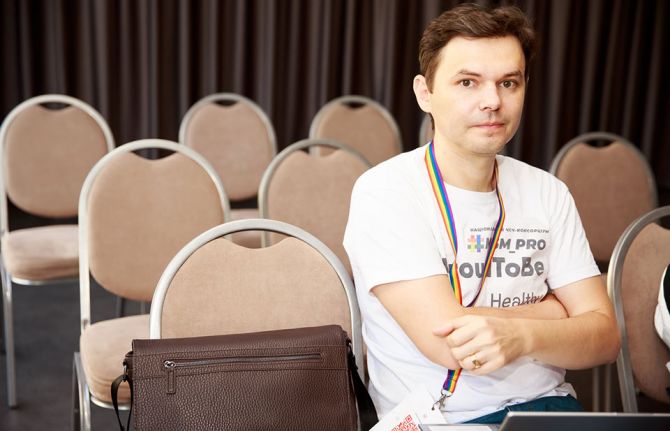
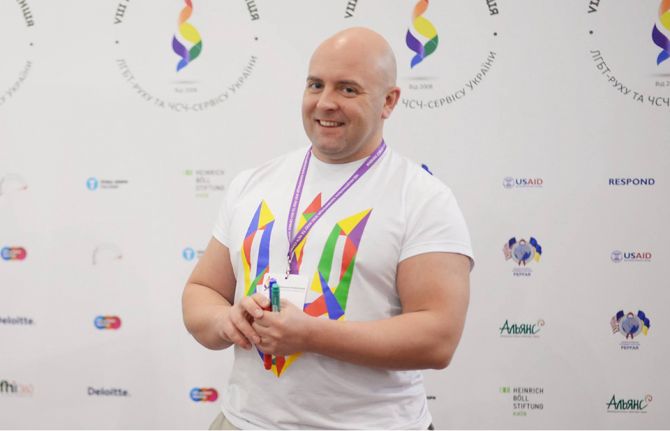
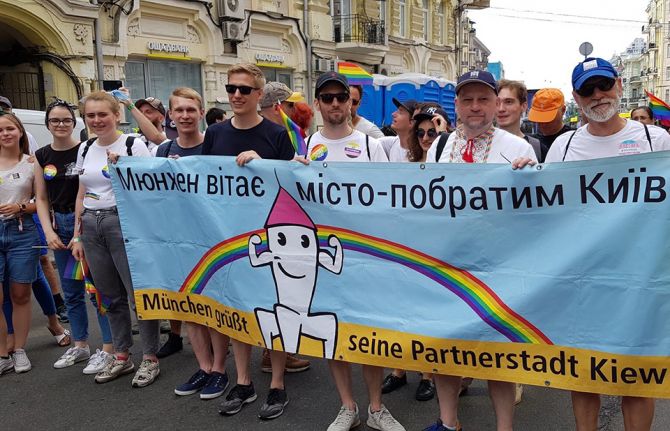
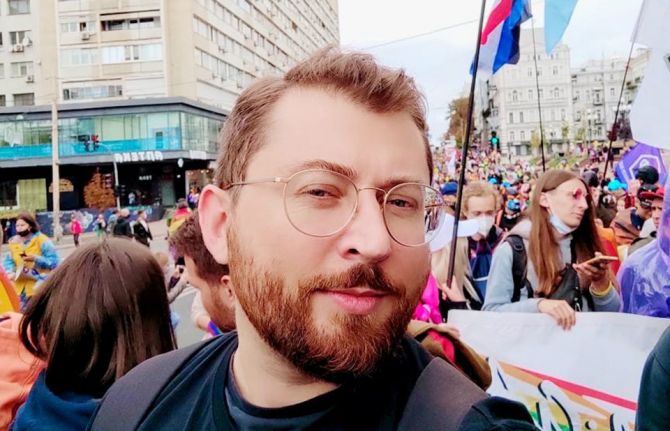
Feature Story
“A litmus test of civilization” - How the war in Ukraine has impacted LGBTI people
03 May 2022
03 May 2022 03 May 2022Andrii Chernyshev heads the advocacy work of the Ukrainian national lesbian, gay, bisexual, transgender and intersex (LGBTI) organization ALLIANCE.GLOBAL, which is one of the largest among about 30 LGBTI community organizations across the country. After the start of the war in Ukraine, he moved from Kyiv to the central part of Ukraine, a safer place to continue his work. His Facebook page has been full of announcements about where LGBTI people fleeing hostilities can find shelter and help, both inside and outside the country.
Before the war, the primary focus of ALLIANCE.GLOBAL was public health, HIV prevention, monitoring of violations of human rights and national LGBTI advocacy. But the war has brought about new urgent tasks.
“The main challenge for all people during the war, including LGBTI people, is just to survive. Many have lost their homes and relatives. Just recently, we welcomed several people from Mariupol, which is now completely destroyed. Although they managed to leave the city, they are in a very bad psychological state,” said Mr Chernyshev.
According to the Office of the United Nations High Commissioner for Refugees, there are now 7.7 million internally displaced people in Ukraine. This number includes members of key populations, including LGBTI people, and others who are especially vulnerable.
Sviatoslav Sheremet, the coordinator of policy and legislation work of the National MSM Consortium, said that there are several factors that make LGBTI people especially vulnerable. “Many LGBTI people are fleeing the areas occupied by Russian forces. People are afraid, and this fear has pushed them to actively move out to safer zones in Ukraine and outside the country.”
He noted that LGBTI people often cannot reveal their sexual orientation or gender identity, fearing violence, rejection and discrimination if they do. He underlined that all cases of homophobia are still being recorded and submitted to state bodies. “The proceedings on such cases are postponed until there is peace,” he added.
Both ALLIANCE.GLOBAL and the National MSM Consortium have significantly changed their work. Several additional shelters for LGBTI people have opened in Dnipro and Chernivtsi. Men and women, including transgender people, can stay there one night and move on, or stay longer, and can bring their relatives and friends. People also receive financial support to leave the war zones and reach shelter.
“The shelter in Chernivtsi, for example, was in a non-residential building,” said Mr Chernyshev. With a small grant from the UNAIDS Emergency Fund and other donors, we installed a shower and bought heaters. People have food, the Internet, a first aid kit, access to HIV counselling and antiretroviral therapy.”
LGBTI organizations outside the country have also provided support to people in need.
Stas Mishchenko, an LGBTI activist from Ukraine, now lives in Munich, Germany. At the beginning of the war, he joined the Contact Group of Munich Kyiv Queer, which is part of the Alliance for Assistance to Queer People of Ukraine, a group of more than 50 LGBTI organizations in Germany whose members volunteer to help people who have fled to Germany and those who remain in Ukraine.
“Sometimes there is homophobia and transphobia in refugee camps. And even if these are not systemic, there is always the human factor, combined with stress, fear and violence. That is why we accompany people on their way to us, provide psychological assistance, try to resettle them in private homes, help with humanitarian aid,” said Mr Mishchenko.
“The war exacerbated both good and bad in our society,” said Marina Novachuk, UNAIDS Community Adviser at the UNAIDS Country Office for Ukraine. It is essential for the state and all stakeholders engaged in protecting forcibly displaced people to recognize and respond to the unique needs of LGBTI and gender-diverse people.”
Over the past 20 years, Ukraine has made a real breakthrough in ensuring the rights of LGBTI people and in protecting their security. LGBTI rights are an integral part of the National Human Rights Strategy. Leaders of the LGBTI community sit on the National Council of HIV and TB, as well as on regional councils. The number of participants of the annual equality marches has risen from just a dozen to thousands of people. Ukraine plans to develop legislation on the registration of civil partnerships.
“Achieving civil equality has been the goal of my work for many years—I have seen huge improvements. The attitude towards LGBTI communities is a litmus test of civilization,” Mr Sheremet said.
In April 2022, Ukraine received a questionnaire from the European Commission on its readiness for candidate status for membership of the European Union. On 18 April, Ukraine completed and submitted the first part of the questionnaire, which includes several questions on the situation with regard to LGBTI people and legislation, specifically about the legislative and policy instruments in place to prevent and respond to discrimination and how hate crimes are addressed in the criminal code. ALLIANCE.GLOBAL and the National MSM Consortium team will follow the process closely.
“We have been working on changes in the legislation on LGBTI rights for many years now and we hope that now it will take not years but months to change. But first the war should end,” added Mr Chernyshev.
Region/country
Related
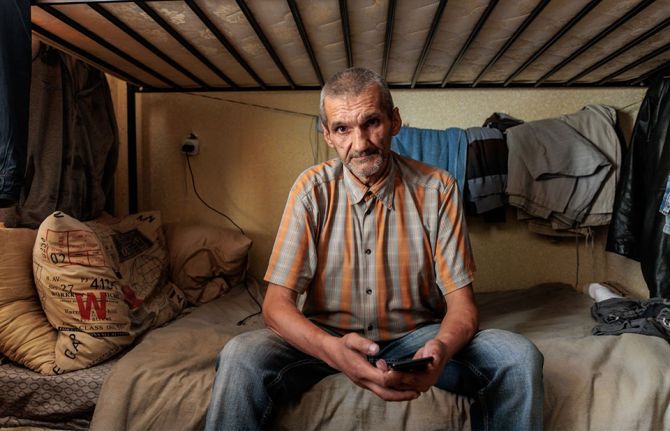 Ukraine: Keeping people in care
Ukraine: Keeping people in care

23 February 2026
 Women, HIV, and war: a triple burden
Women, HIV, and war: a triple burden

12 September 2025
 Displacement and HIV: doubly vulnerable in Ukraine
Displacement and HIV: doubly vulnerable in Ukraine

11 August 2025
